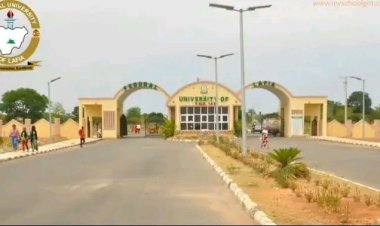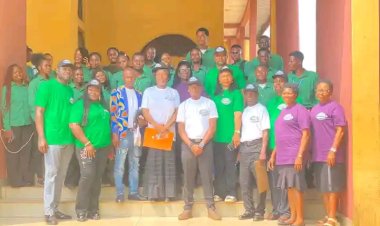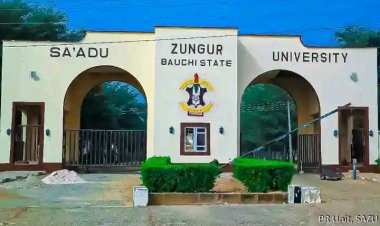Federal University of Health Sciences, Ila-Orangun VC Expresses Concern Over Low NELFUND Enrollment in Southwest
Professor Akeem Lasisi, Vice-Chancellor of the Federal University of Health Sciences, Ila-Orangun (FUHSI), has raised concerns over the low enrollment of Southwest students in the Nigerian Education Loan Fund (NELFUND).

Professor Akeem Lasisi, Vice-Chancellor of the Federal University of Health Sciences, Ila-Orangun (FUHSI), Osun State, has expressed concern over the low enrollment of students from the Southwest region in the Nigerian Education Loan Fund (NELFUND).
Speaking during the handover ceremony of the university’s Senate building, Lasisi emphasized the need for increased awareness and participation in the initiative to ensure that more students benefit from the financial support provided by the government. He noted that while funds have been disbursed to the university’s account for FUHSI students who have registered, the overall registration rate in the region remains significantly lower than in other geopolitical zones.
“What we need to do about NELFUND is to sensitize the students that they have to register. Our students who registered have paid their school fees to us. At this time in the country, all students should be encouraged to register for NELFUND so that they can benefit from it,” Lasisi stated.
The Vice-Chancellor further pointed out that the low number of applicants has delayed the full implementation of the program in the Southwest. He urged university management and student leadership to take proactive steps in promoting NELFUND registration among students.
“The delay in the programme is the number of students. If they are not coming readily, there is nothing NELFUND can do. In the Southwest, the number of students that have registered in the zone is a far cry compared to the number in another geopolitical zone. We have discussed this with the management, and we talked to their leadership to register,” he added.
The Nigerian Education Loan Fund (NELFUND) was established to provide financial assistance to students in higher institutions across the country, easing the burden of tuition fees and other academic expenses. However, the disparity in enrollment across regions has raised concerns about equitable access to the scheme.
Stakeholders in the education sector have been called upon to intensify efforts in creating awareness and encouraging more students to take advantage of the initiative. With increased participation, the fund is expected to serve its purpose of making higher education more accessible to Nigerian students.

 Chris Oyeoku Okafor
Chris Oyeoku Okafor 



